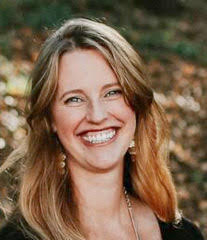|
Most survivors of trauma, whether the disaster was man made or natural, find some element of betrayal in their experience. Perhaps there was violence done to them by another person, stranger or trusted companion. Perhaps a natural disaster struck and was made worse by the misguided or ill-informed actions of others. Or maybe it was simply that something bad happened, and it just is not fair. That feeling of being betrayed, of foundational beliefs being shaken or the “oughts” of relationships being ignored, strikes deep. This is why so often the concept of forgiveness becomes part of the healing process. But forgiveness is complex, it’s tricky, and if we as directors try to push for survivor to offer forgiveness prematurely, we may actually hinder our directees from experiencing the empowerment and relief found in the process. Psychologically speaking, forgiveness is a natural outcome of healing. When deep healing has occurred and a survivor is able to feel safe the trauma can finally be released. Forgiveness comes when the anger, in whatever form it was carried, that was keeping a survivor safe and alive are no longer needed. The service performed by those strong emotions and biological responses is complete, and they are let go. Forgiveness may be helped along by justice being rendered, or at least acknowledgement of the pain caused to the survivor. Forgiveness is the conclusion of the healing process. This is not how forgiveness is viewed in many religious traditions. Particularly in Christian traditions, forgiveness is often touted as a first step in healing. It becomes an “ought,” something that is required of the survivor. This is unfair to the survivor as they may not be ready to release yet. For many, the word “forgiveness” also carries with it an implied absolution of the wrong done or the perpetrator. Some traditions or individual faith leaders may even push for reconciliation between perpetrator and survivor. These are not healthy, nor helpful, directions to force a survivor. Forgiveness is an important human concept and experience that easily becomes clouded by dogma. If we, as spiritual directors, are able to hold open handedly our personal concepts and definitions of forgiveness - how it plays out and what it looks like - we will better serve our directees. We can be sensitive to what the implicit meanings of forgiveness are in our tradition and perhaps offer safer language. One such option would be “unburdening.” What would it be to be free of the burden of what has happened to you? How might you become free of the burden? Usually, the word forgiveness is not needed. In cases where I have had directees who felt they must offer forgiveness, and who specifically defined forgiveness as both absolution for the offender and the first step to reconciliation, I have gone so far as to say, “Forgiveness as you define it is unnecessary for healing.” What is necessary is to release the self from the power the event or person holds. It is necessary to become free as much as possible from fear. These hard found freedoms have great healing benefits, but the journey to them can be long and should not be rushed. Forgiveness comes when the anger, in whatever form it was carried, that was keeping a survivor safe and alive are no longer needed. The service performed by those strong emotions and biological responses is complete, and they are let go. Forgiveness may be helped along by justice being rendered, or at least acknowledgement of the pain caused to the survivor. Letting go of anger, hate, and a desire for vengeance is an important part of healing. However, the part of us that was or feels betrayed is often one of the last parts of us to receive healing because all the other aspects of what is changed in our day-to-day life have to be settled, and we have to sort through the pressing emotions and reactivity before we can address meta-emotional concepts like unburdening. How can you as a director hold space for the lengthy and important journey your directee is taking towards releasing the burdens held over from their trauma? How can you help them navigate the language and theologies involved? What does the word “forgiveness” mean to you? What do you believe is truly required for healing to take place? Recommended Reading: Still Listening: New Horizons in Spiritual Direction, by Norvene Vest
0 Comments
Leave a Reply. |
�
SPIRITUAL DIRECTION BLOG
From 2012-2020, this blog space explored expanding understanding and best practices for holistic health in the context of spiritual direction.
This website serves as a historical mark of work the Institute conducted prior to 2022. This website is no longer updated. Archives
September 2020
Categories
All
|



 RSS Feed
RSS Feed
